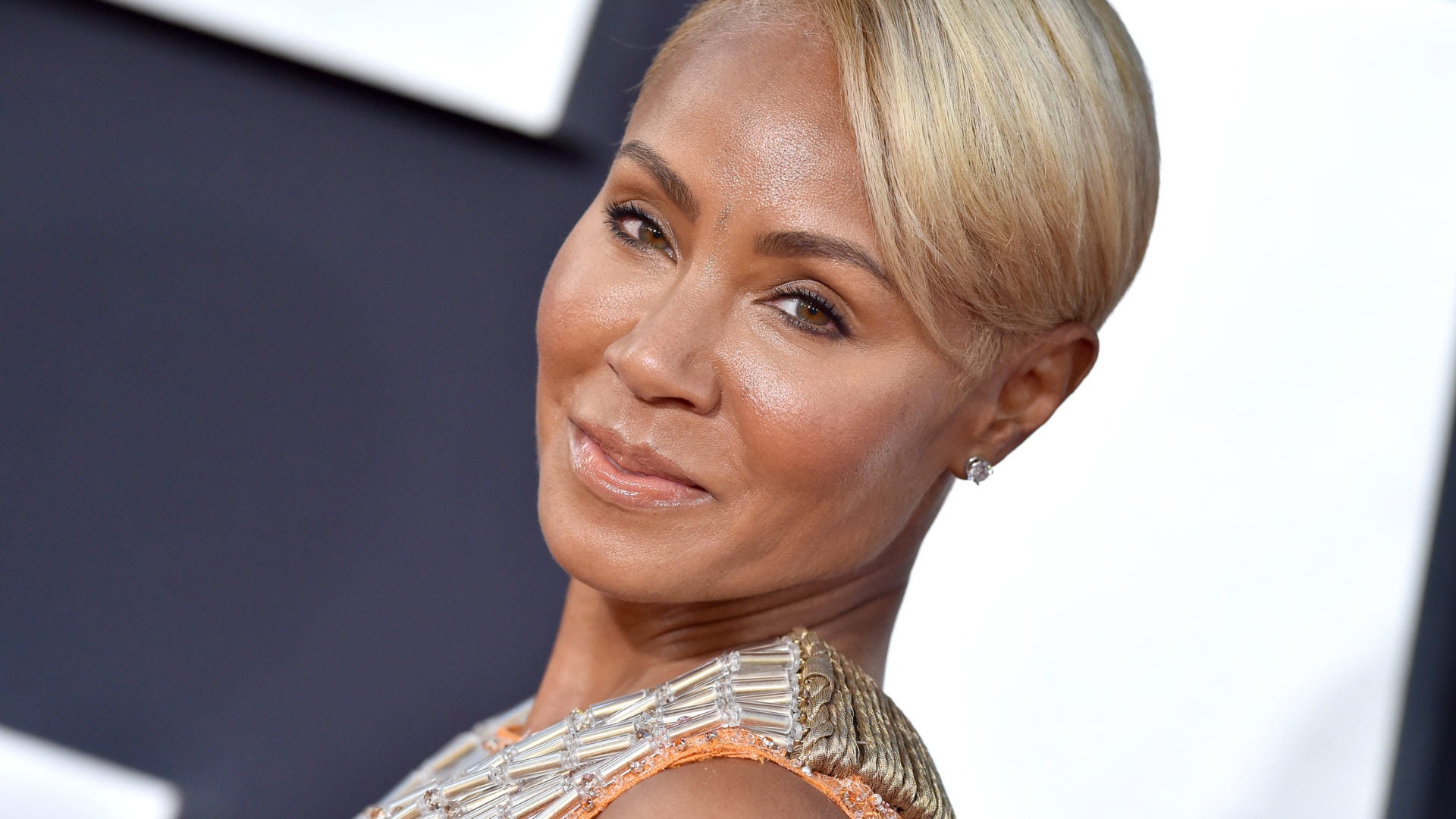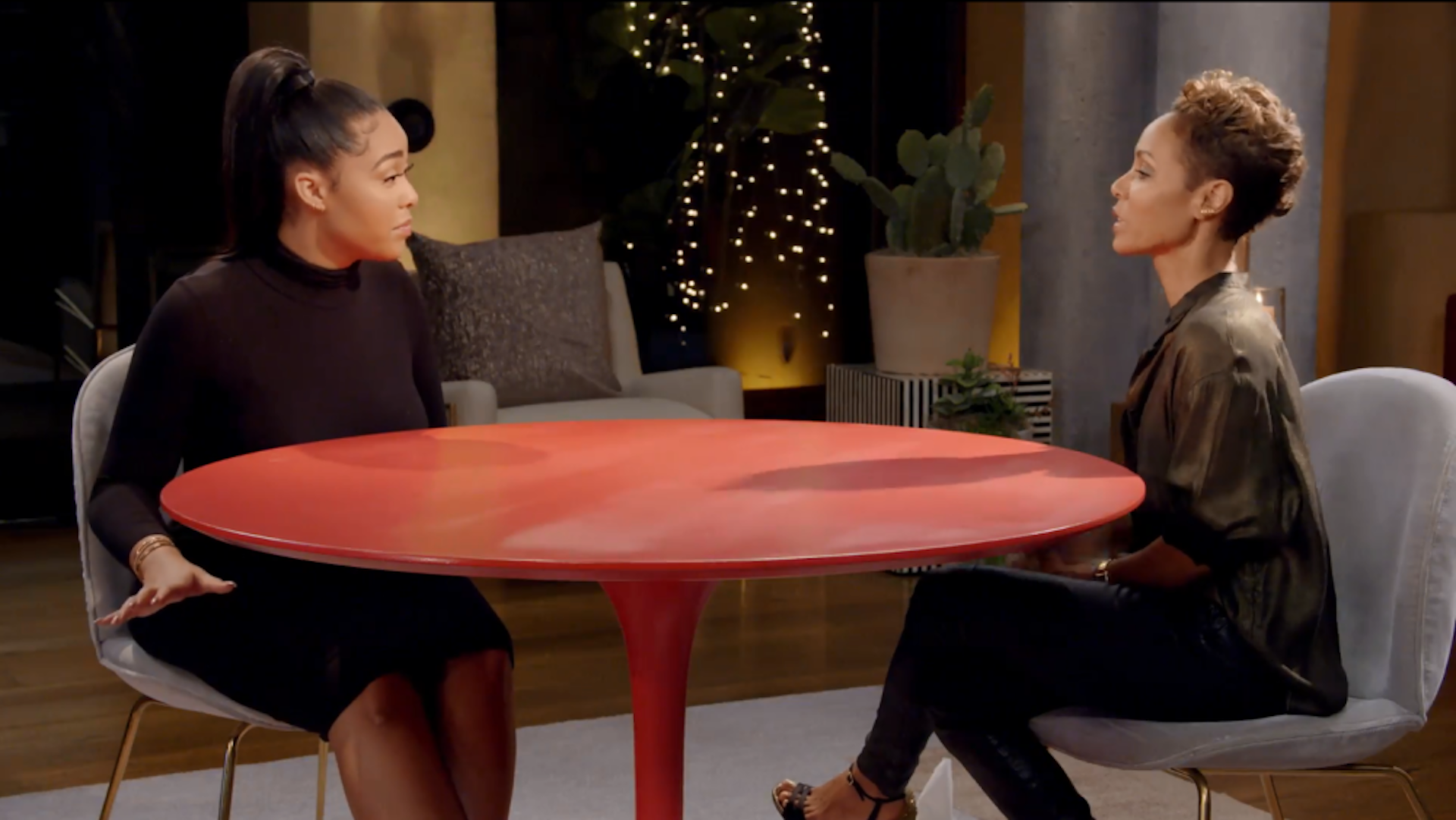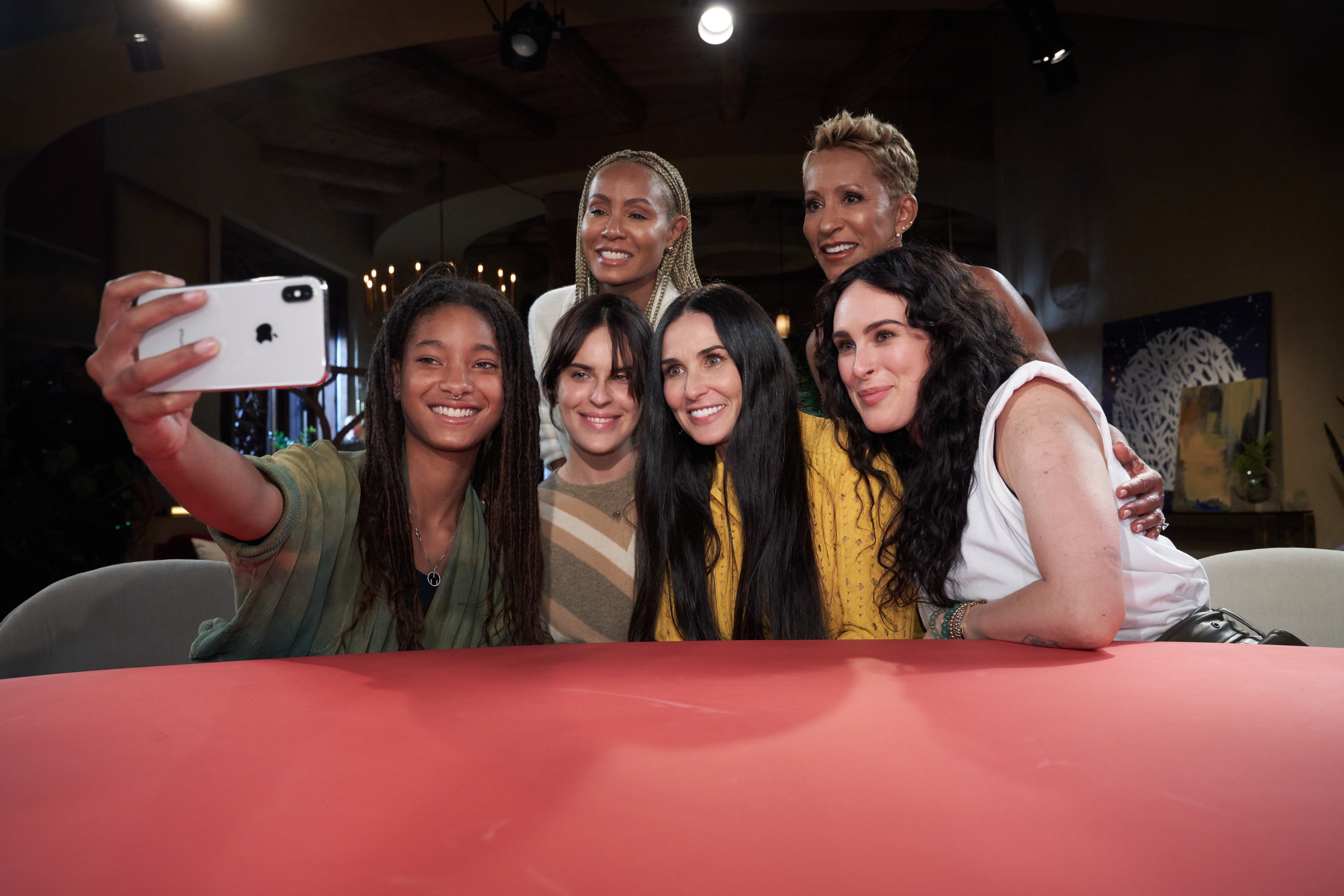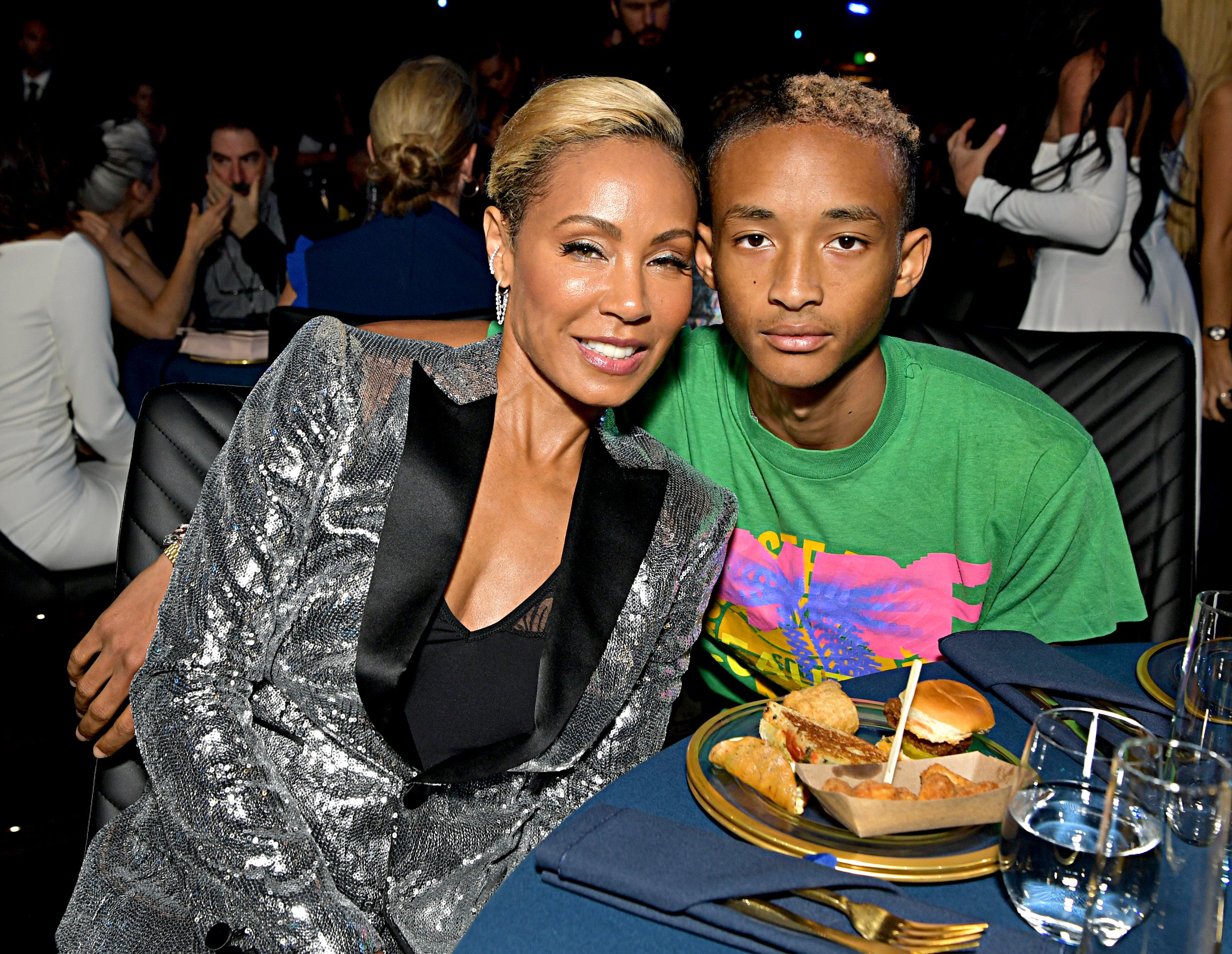
We’ve all heard our aunties say it one way or another—”family business is family business” or “don’t air your dirty laundry” or “what happens in this house, stays in this house.” However the phrase, they all mean the same thing, and it’s a concept that has kept many Black women in emotional and psychological chains.
It’s part of the reason why Jada Pinkett Smith created Red Table Talk on Facebook Watch. Now in its second season, the actress is even more comfortable opening the windows into dark and dank spaces that affect us all—from emotional abuse to alcoholism to race to sexuality. And viewers are connecting deeply as the series has amassed 6.7 million followers on the social network.
Tiffany Haddish, Alicia Keys, Ayesha Curry, Ciara and even Jordyn Woods have all sat down at the table with Pinkett Smith; her mother, Adrienne Banfield Norris; and her daughter with husband Will Smith, Willow. And it’s because they view the bright table as a safe space.

“Black women,” Pinkett Smith tells ESSENCE, “we’re not given the license to talk…and we kind of have to dissolve those ideas that we’re not allowed.”
It helps that American society has embraced therapy culture, the actress admits.
“In these new times, it’s important in regards to us moving forward that there’s so much internal healing that we have to do, and it has to start with us as individuals, and then into our families and then into our communities,” Pinkett Smith explains.

It’s why Demi Moore and her two daughters with Bruce Willis, Rumer and Tallulah Willis, called Smith to discuss the effects of addiction on a family at the red table. Smith, whose own mother is more than 20 years sober, “loved” the idea.
“I have that in my family. That’s what was deeply relatable to me, and I wanted to see their process of healing,” Pinkett Smith continues. “She trusted us to do that…because so many of us are being affected in that way, but very rarely do we talk about it and very rarely do we know how to talk about it.”
Pinkett Smith says she doesn’t arrive at the table pretending to have the answers. Instead, she has a litany of nonjudgmental questions. In fact, the Girls Trip star says she learns more from her guests, especially her cohost and only daughter, Willow.
“That’s why we have such a hard time in our mother-daughter relationships…. Our daughters are our mirrors,” she explains. “They’re our mirrors. And so a lot of times we have to confront things of our past in present time with things that our daughters are going through, and we’d just rather not.”
Pinkett Smith has also welcomed her son, Jaden, to the table to talk about his vegetarian and vegan eating habits. Still, learning to mother him is likely an interesting topic for a future Red Table Talk.
It took a lot of trial and error with Jaden.”
“It took a lot of trial and error with Jaden because…I had a certain idea of what a Black boy is supposed to look like, what a Black boy was supposed to be and how a Black boy emotionally needs to be in the world to survive it,” the Baltimore native admits. “And then I had to realize, Whoa, whoa, whoa. This Black boy doesn’t come from where you come from.”
“It is night and day,” she says of her upbringing compared with Jaden’s. “So I had to educate myself and I had to get out of how I was raised…and allow him his individuality in his reality, not mine.”

And although she’s proud of the free Black boy she’s helped nurture in the world, the American Son producer isn’t blind to the realities of what it means to be Black in America, and the garden variety oppression that you can’t escape even if your parents are rich and famous.
“I had to learn how to educate him because he’s still a Black boy in America,” Pinkett Smith continues. “It’s tough. It takes us as mothers continuously being able to look at our child, see what they need and, instead of forcing them to become what we want them to be, adjust ourselves to nurture who they are.”
Red Table Talk is available on Facebook Watch now.







